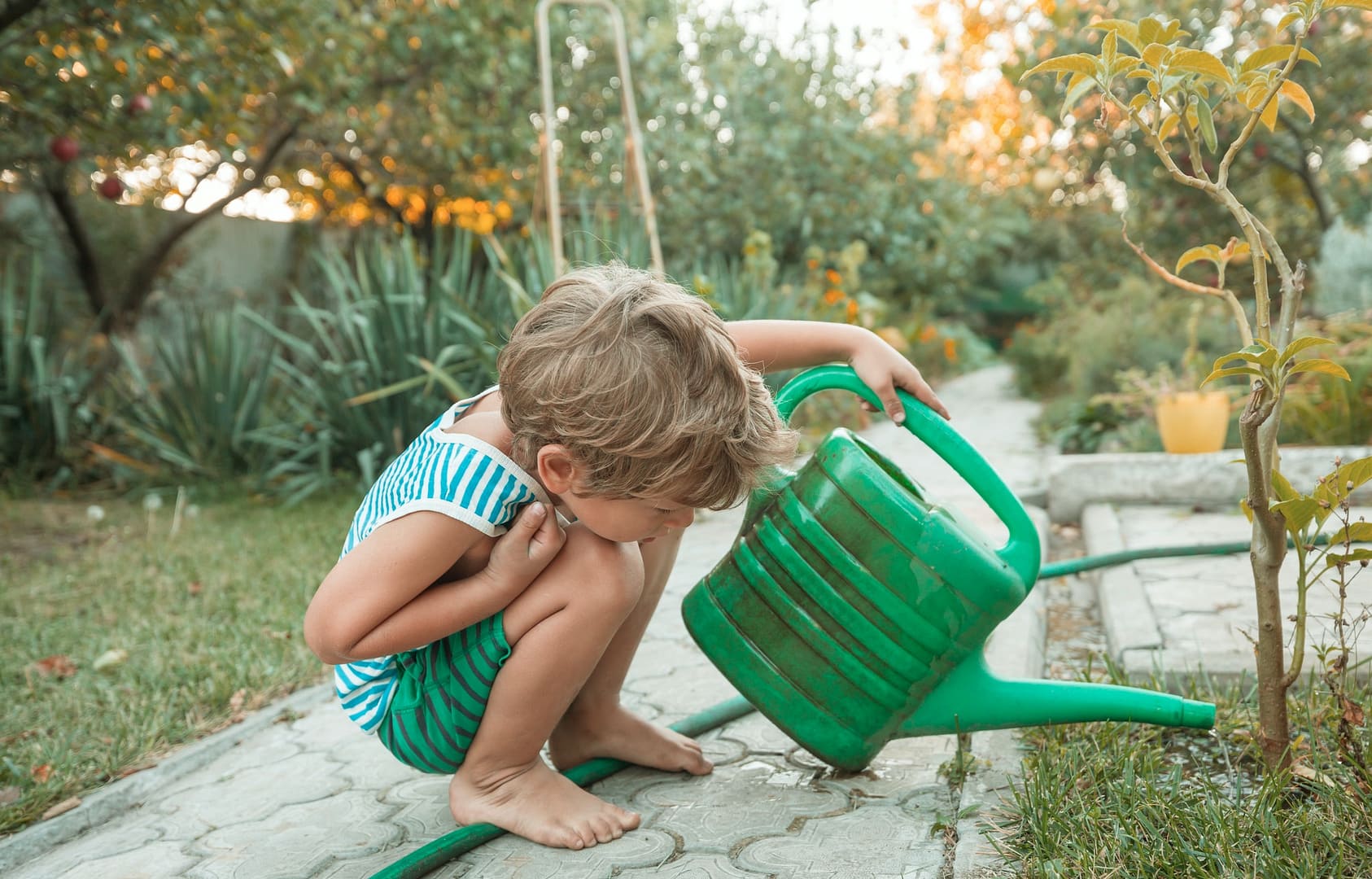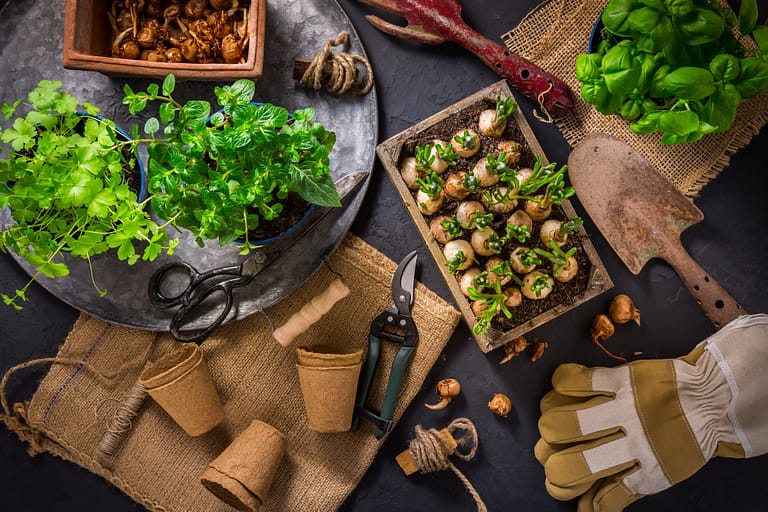Waterwise Gardening in Dallas
Are you interested in creating a vibrant garden while saving water? Embracing waterwise gardening in Dallas allows you to achieve a stunning, sustainable landscape without compromising safety.
This approach focuses on efficient irrigation, selecting plants that can withstand drought, and retaining soil moisture. By adopting waterwise gardening techniques, you can conserve water and still enjoy a thriving garden that enhances the beauty of your home.
Let's delve into the benefits and methods of waterwise gardening in Dallas to understand how you can create an eco-friendly outdoor space.
Key Takeaways
Are you looking to create a beautiful garden while conserving water? Embracing waterwise gardening in Dallas allows you to achieve a stunning, sustainable landscape without compromising safety. This method focuses on efficient irrigation, choosing plants that can withstand drought, and retaining soil moisture. By adopting waterwise gardening techniques, you can conserve water and still enjoy a thriving garden that enhances the beauty of your home. Let's explore the benefits and methods of waterwise gardening in Dallas to understand how you can create an eco-friendly outdoor space.
Waterwise Gardening Benefits
Waterwise gardening can help you save a lot of water. Programs like Texas SmartScape and TAMU Earth-Kind® recommend water conservation techniques that can help you create a landscape needing minimal irrigation and reducing water usage.
The Dallas County Master Gardeners support waterwise gardening because it benefits the environment and your wallet. These techniques prevent overwatering and reduce the risk of water-related issues like surface runoff and erosion.
Embracing waterwise gardening not only makes your landscape look better but also encourages the efficient and mindful use of water resources. By following these principles, you not only help conserve water but also create a sustainable and beautiful garden that needs less water to thrive.
Drought-Tolerant Plant Selection
When choosing plants for your Dallas garden that can withstand drought, it's important to pick ones that help save water and add beauty to your outdoor space. It's crucial to keep the soil moist to ensure the good health and strength of these plants.
Additionally, you might consider options like lavender, yucca, and agave, which are well-suited for the Dallas climate and require minimal watering once established. These plants not only thrive in dry conditions but also contribute to the aesthetics of your garden.
Therefore, thoughtful selection of drought-tolerant plants not only supports water conservation but also enhances the visual appeal of your garden.
Best Drought-Tolerant Plants
Are you searching for plants that can withstand dry conditions in Dallas? You might want to consider adding a variety of options to your garden, such as yuccas, orange zinnias, dahlias, and bananas. These plants not only thrive in Dallas's climate but also bring vibrant colors and textures to your outdoor space.
For more choices, the Dallas County Master Gardener Association suggests Japanese maples, coral bark Japanese maple, heavenly bamboo, asters, borage, and hibiscus. These plants not only handle drought but also provide essential resources for local wildlife, like honeybees.
To add a splash of color to your winter garden, you could think about planting pansies, violas, ornamental kale, Swiss chard, and red giant mustard. These options won't only brighten up your garden but also help with water-efficient gardening in Dallas.
Water-Saving Landscaping Options
When you want to create a water-saving landscape in Dallas, it's important to choose plants that can thrive in the local climate with minimal watering.
Look for drought-tolerant plants that are well-suited to Dallas's arid conditions. Consider native plants like Texas Sage, Blackfoot Daisy, and Purple Coneflower, as they've evolved to withstand the region's droughts.
Succulents such as Agave and Yucca are also excellent choices for water-wise gardening in Dallas because their fleshy leaves or stems store water, reducing the need for frequent watering.
Maintaining Soil Moisture
In a waterwise garden in Dallas, it's important to choose plants that can withstand drought. This helps to keep the soil moist while saving water. Native plants are a great choice as they're well-suited to the local climate and require less maintenance.
Here are a few examples of drought-tolerant plants that thrive in Dallas County:
- Yuccas: These are tough, low-maintenance succulents that thrive in dry conditions and help conserve water.
- Orange Zinnia: These vibrant flowers not only attract pollinators but also are resilient to drought and add a pop of color to your garden.
- Nandina Domestica: An evergreen plant with ornamental berries that can tolerate dry conditions and has low water needs.
Efficient Irrigation Techniques
Improving water efficiency in your Dallas garden is essential. The Dallas County Master Gardener Association suggests using smart irrigation techniques for waterwise gardening. Two effective methods are drip irrigation and soaker hoses. These deliver water right to the plant base, reducing evaporation and runoff. To gauge rainwater, a rain gauge is useful for adjusting your irrigation schedule. Installing a rain sensor in your irrigation system can also prevent unnecessary watering after rainfall. Using a timer to water in the early morning or late evening when evaporation rates are lower is beneficial.
Efficient irrigation techniques play a vital role in conserving water and fostering robust plant growth in your Dallas garden. As we shift to discussing 'soil moisture retention strategies', it's important to see how your irrigation techniques can support efforts to maintain soil moisture.
Soil Moisture Retention Strategies
Improving soil moisture retention is essential for the health of your plants.
One way to do this is by using mulch around your plants. Mulch helps control soil temperature and reduces water evaporation.
Another effective method is installing a drip irrigation system. This system delivers water directly to plant roots, reducing runoff and increasing absorption.
You can also enhance soil moisture retention by adding water-absorbing soil amendments like compost or peat moss. These amendments improve the soil's ability to retain moisture, promoting healthier plant growth.
Mulching for Moisture
Mulching is a crucial technique for keeping soil moist in your water-efficient Dallas garden. By using organic mulches such as compost, bark chips, or straw, you can decrease the need for excessive watering and improve the soil with necessary nutrients.
The Dallas County Master Gardener Association suggests mulching to help control soil temperature, prevent erosion, and stop weed growth, all of which help keep moisture in your garden. Mulch also protects plant roots from extreme heat or cold by maintaining healthy soil structure and reducing water evaporation.
When applying mulch, ensure a layer of 2-4 inches, and be careful to leave space between the mulch and plant stems to prevent rot. This simple yet effective method helps conserve water and promotes the thriving growth of your water-efficient garden.
Drip Irrigation Systems
In your Dallas garden, using a drip irrigation system is essential for keeping the soil moist and reducing water waste. These systems directly supply water to the plant's roots, preventing evaporation and runoff. They also avoid overwatering by slowly and deeply watering the soil, allowing it to dry between watering.
Here are some benefits of using a drip irrigation system: it reduces water waste, prevents overwatering, and delivers water directly to the root zone. By using a drip irrigation system, you can effectively control water usage, which is crucial for your garden's health and sustainability.
Additionally, transitioning from drip irrigation systems to water-absorbing soil amendments can further improve the soil's moisture retention capacity.
Water-Absorbing Soil Amendments
When you take care of your garden in Dallas, it's important to think about using soil additives that help the soil retain water. This can reduce the need for extra watering. Adding organic materials like compost and mulch can really improve the soil and help it hold onto water better. These additives make the soil stronger, so it can soak up and keep more water.
When the soil can hold water well, you won't need to water as often, which is good for saving water and being smart about gardening in Dallas. Also, when you mix organic materials into the soil, it gives important nutrients to the plants, making your garden healthier and more sustainable.
Using these strategies not only saves water but also makes your garden safer by cutting down on the need for lots of watering. This helps create a more balanced and natural environment for your garden.
Mulching for Water Conservation
Mulching is a great way to save water in your Dallas garden. It helps keep the soil moist and reduces water loss through evaporation. In a water-efficient landscape, mulching is crucial.
Organic mulches like wood chips or compost, recommended by Master gardener volunteers from the County Master Gardener Association, can enhance soil quality and help retain water. When you apply a layer of mulch around your plants, it reduces the need for frequent watering and minimizes water evaporation.
Additionally, mulch prevents soil erosion and compaction, supporting healthy plant growth and efficient water retention. By making mulching a part of your gardening routine, you can contribute to a more sustainable and water-efficient landscape in Dallas.
Sustainable Water Management Practices
Water management in your Dallas garden can be improved through efficient irrigation and soil analysis for better water retention.
You can install drip irrigation or soaker hoses, which deliver water directly to plant roots, reducing evaporation and water runoff.
Additionally, consider using rain barrels to collect rainwater for later use, reducing the need for treated water.
To learn more about sustainable water management practices, you can participate in the annual Water-Wise Landscape Tour, where local experts share valuable insights.
Frequently Asked Questions
What Are the Water Restrictions for Dallas 2023?
Dallas has water restrictions in place for 2023 to save water. It's important to use efficient irrigation methods and drought-resistant plants to conserve water. By ensuring that landscapes can thrive with minimal additional watering, we can promote the efficient use of water. For example, consider installing a drip irrigation system or using mulch to retain moisture in the soil. These steps can help Dallas residents and businesses meet the water restrictions while maintaining healthy landscapes.
How Do You Plan a Water Wise Garden?
Planning a water-wise garden involves first researching plants that can withstand drought. Look for plants like lavender, yarrow, and salvia, which are known for their ability to thrive with minimal water. Once you have selected your plants, create a sketch of your garden design. This step is crucial as it allows you to visualize how the plants will be arranged and how water will flow through the garden. By carefully planning and considering these elements, you can create a beautiful, low-maintenance garden that conserves water effectively.
How Do You Make a Waterwise Garden?
Creating a waterwise garden involves several key steps. First, prepare the soil and select plants that can withstand drought conditions. Utilize efficient irrigation methods such as drip systems and apply mulch to retain moisture in the soil. By incorporating xeriscaping techniques and native landscaping, you can significantly reduce the amount of water needed for your garden. For example, consider planting native wildflowers like Black-eyed Susans or using succulents such as Aloe vera, which require minimal watering. These choices not only conserve water but also add natural beauty to your garden.
What Is a Waterwise Garden?
Creating a waterwise garden involves using plants that can thrive with minimal water, implementing sustainable landscaping practices, and utilizing water-saving techniques. This method helps conserve water, supports sustainable plant growth, and reduces the need for frequent maintenance, ultimately enhancing the resilience of your garden. For instance, you can consider incorporating succulents, such as aloe vera and sedum, which are well-suited to arid conditions. Additionally, using mulch around plants can help retain moisture in the soil, reducing the need for excessive watering while promoting healthy plant growth. These strategies contribute to a more environmentally friendly and low-maintenance garden.







